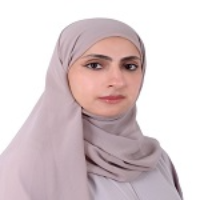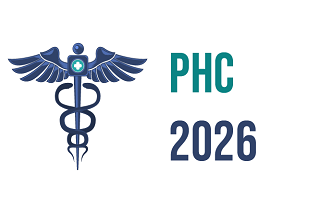5th International Conference on
Primary Health Care
November 26-27, 2026 | Dubai, UAE

Address: Al Barsha, Al Barsha 1, Dubai, United Arab Emirates
PHC 2026

Emirates Health Services, UAE
Title : Telecare – Is it Worthwhile?
Abstract:
Introduction
Telecare is a form of remote healthcare delivery that utilizes technology to provide continuous, automated support, particularly for elderly and chronically ill patients. Unlike telehealth and telemedicine, which often involve intermittent interactions, telecare aims to maintain ongoing monitoring and assistance. This presentation explores the implementation, benefits, and limitations of telecare services, especially in the context of elderly home care, using evidence from global studies and the Emirates Health Services (EHS) model in the UAE.
Methodology
This review analyzes the development and effectiveness of telecare through evaluation of published studies, government reports, and outcomes from EHS's integrated home care system. It discusses the classification, adoption barriers, user perceptions, and technological solutions involved in delivering remote care. The EHS home care model is examined for its smart design, operational integration via EMR (Wareed), and multidisciplinary approach.
Management
Effective management of telecare requires a coordinated framework involving automated patient enrollment, remote documentation, teleconsultation, and home medication delivery. The EHS model incorporates specific tools for physicians, nurses, physiotherapists, dietitians, and behavioral health professionals, enhancing team alignment and care planning. Despite its demonstrated benefits—such as reduced hospital visits, improved care efficiency, and patient convenience—barriers like technological resistance, cost, and age-related user challenges persist. Recommendations include expanding multidisciplinary care pathways, incorporating user-friendly interfaces, and promoting wider adoption through education and training.
Conclusion
Telecare offers a promising avenue for improving quality of care and resource efficiency, particularly for the elderly and those with chronic conditions. While quantitative outcomes show modest clinical differences, qualitative insights highlight increased patient confidence and reduced system burden. The success of the EHS model underlines the potential of smart, integrated care systems, though further efforts are needed to address adoption challenges and strengthen patient-provider connections in virtual settings.
Biography:
Dr. Fatima Abdalla Almeleh, having graduated from Jordan University of Science and Technology Faculty of Medicine with an MBBS degree, then pursued specialization in family medicine, earning the Arab Board certificate in family medicine and the Membership of the Royal College of General Practitioners in 2013. Throughout her career, Dr. Fatima has demonstrated a steady rise in her professional roles, including a nine-year tenure as the director of two Primary Health Centers. During this time, she excelled in enhancing the quality of services provided at the centers, honing her leadership skills in the process.
